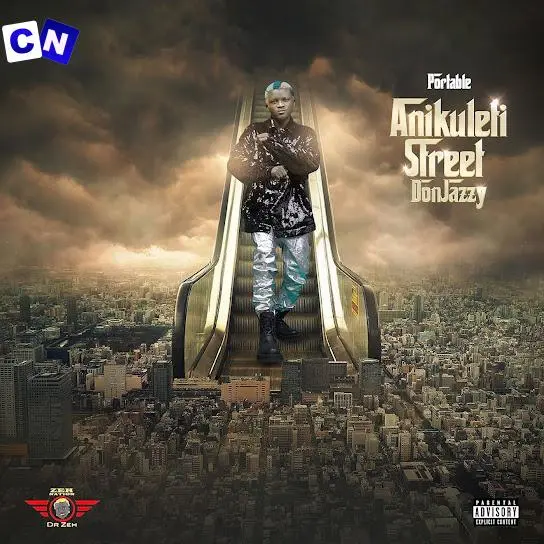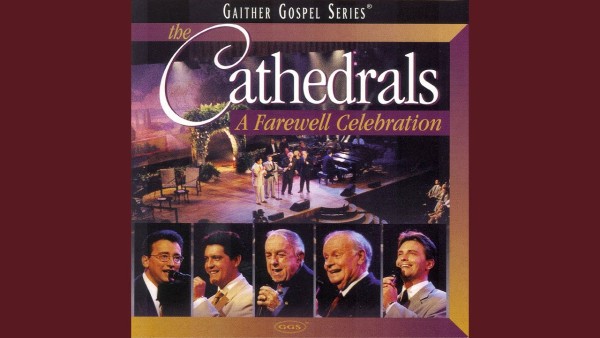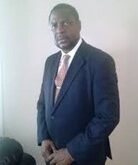The Nigerian Press Council (NPC) recently organised a workshop on post 2023 general elections coverage and reportage in a bid to ensure the maintenance of the highest ethical and profession standard as well as hold the media accountable. CHIZOBA OGBECHE was there and brings this report.
As the saying goes, preparations for the next elections begin immediately after the last ends. This may have informed the decision by the Nigerian Press Council (NPC) to hold the workshop on the post 2023 general elections assessment.
The workshop, which had participants from different media organisations across the country, featured paper presentations on an array of topics including: Assessment Of Media Performance In The Coverage Of 2023 General Elections by the Executive Director, Institute of Strategy and Development Communication, Professor E. S. Dandaura; and on The Influence Of Media Ownership And Media Gatekeepers In The Coverage And Reportage Of The Electoral Process by Former Director, Research and Documentation Department, NPC, Ms Stella Jibrin.
Media and elections
It goes without saying that the media has essential roles to play in the sustenance of democracy, and consequently elections. These roles include being a watchdog and safeguarding the transparency of the electoral processes.
It is worth noting that the media needs to maintain a high level of professionalism and impartiality in coverage and reportage of elections to fulfil these roles.
Charting pathway of addressing shortcomings
The Executive Secretary, Nigerian Press Council, (NPC), Mr. Francis Nwosu, while speaking during the workshop, said prior to the 2023 general elections, the NPC had organised workshops for journalists to sensitise them on how best to cover the electoral process towards making the elections a success.
He explained that: “The reason for the gathering was to carry out a post-mortem on the performance of the media in the course of and after the 2023 general elections.
“Ask pertinent question like what were the criticisms that trailed coverage and reportage of the election processes that needed to be interrogated with a view of charting pathway of addressing identified shortcomings? This is to provide media performance in subsequent elections alongside strengthening democratic values and institutions.”
According to the executive secretary, the workshop was to also assess the general consensus about the level of professionalism of the media in its handling of the last election; the level of media compliance to the provisions of the Nigerian constitution; the electoral Act and Guidelines; as well as the Nigerian Media Code of Election Coverage and Code of Ethics for Nigerian journalist.
He noted that the workshop was the modest contribution of the council in providing capacity to journalists expressing the hope that the exchange of ideas between the resource persons and participants will help them acquire more knowledge for effective and efficient coverage and reportage of elections in the future.
He expressed hope that the workshop would avail the participants the opportunity to assess media performance and the achievements and identify areas where improvements were needed.
Democracy rests on free press – Isiguzo
In his remarks, the President, Nigeria Union of Journalists (NUJ), Dr Chris Isiguzo, appreciated that NPC for the workshop stating: “Our democracy rests on the pillars of free press and fair elections, making the role of the media paramount in shaping the narratives that define our nation.
“I commend the NPC for their commitment to promoting high professional standards for the press. The focus of this workshop reflects a dedication to introspection and improvement, a testament to the vital role journalists play in our democratic journey.
“The 2023 general elections marked a significant chapter in our nation’s history, and the media, as a key stakeholder, was entrusted with the responsibility of guiding the electorate through the intricate web of our electoral processes.
“This workshop, focuses on a post-mortem analysis of the media’s performance, provides a valuable opportunity to reflect on our achievements and identify areas where improvements are needed.
“Our democracy thrives when the media upholds the principles of fairness, objectivity, and accountability. “The objectives outlined for this workshop, to assess media compliance with constitutional provisions, electoral laws, and codes of ethics, are pivotal for ensuring that the Fourth Estate of the Realm remains a beacon of truth and transparency.
“I am confident that the discussions that will be held during these two days will not only shed light on the strengths and weaknesses of the media’s performance but will also contribute to a roadmap for enhancing future elections coverage. “Criticisms are stepping stones to improvement, and it is through constructive dialogue and shared commitment that we can fortify our democratic values and institutions.”
Speaking further, he said: “I express my deepest gratitude for this opportunity to address such a distinguished gathering. I look forward to the insightful deliberations ahead and the positive impact they will undoubtedly have on the future of journalism in Nigeria.”
The NUJ president expressed optimism that the workshop would be a catalyst for a more robust and responsible media landscape in our beloved country.
Also speaking, the NUJ Vice President, Zone D, Comrade Kris Atsaka, lamented that most of the time, journalists operate under harsh and unfavourable conditions in the course of their work.
He noted that often, those who were expected to protect journalists in the line of duty see them as enemies.
Atsaka called for concerted efforts towards the protection and welfare of journalists, stressing that if done, journalists would perform their duties more professionally and optimally.
Case for training, capacity building
Presenting a paper titled: “Assessment Of Media Performance In The Coverage Of 2023 General Elections,” the Executive Director, Institute of Strategic and Development Communication, at the Nasarawa State University, Professor Emmanuel Dandaura, enumerated several factors that shaped the coverage of the 2023 elections.
He named the factors to include: social media influence, objectivity by newsmen, hate speech, media ownership, provocation, religion, and media convergence.
Dandaura, who was represented by a former Business Editor with the Punch Newspaper, Dr Everest Amaefule, also stated that friendship, money and power of incumbency played very prominent role and dictated the tune of coverage of the 2023 general elections.
He appreciated the Council for undertaking the review of the election, saying it is important to improve the system, institutions to be able to shape future events.
He suggested ways forward, including the constant training and capacity building of journalists as well as social media influencers to update to speed their ability for good coverage.
Use of media conduct code
Similarly, while speaking on “Appraisal Of Use Of Mass Media In The Coverage Of 2023 General Elections” Dr Isaac Nyam, Department of Mass Communication, Veritas University, Abuja, urged journalists to also keep to the ethics and code of conduct of their profession.
This is as he harped on the need to be objective and ensure balance in their reportage.
Nyam also encouraged the media on the production of local content, especially in the various local languages, to enable them to pass information to the grassroots population.
In conclusion, he said: “Nature of evolving Nigeria, structural or interactional, ought to be taken more seriously and reckoned in relation to cogency of mass media use in Nigeria.
“Besides, proximate locations of international engagement in a global but increasingly polarised world are unfolding and implicate sub-optimal mass media dynamics.
“Extent of mass media use and relative outcomes do point to ownership types, performance models, and structures designed for enhanced and deliberate election coverage and election-issue frames and framing. There are serious implications involving the adoption and ubiquitous use of digital media technologies, which have, in turn, shown mixtures between agenda setting and agenda flow dynamics.
“There is also the increasing need for respect for ownership types and performance models, as well as consciousness and conscientiousness about frames and framing. There is also the need for almost strict use of code of media conduct as guiding Mundus operandi. Mass media professionals ought to note agenda setting and agenda flows towards understanding of frames and framing, as well as the dynamics for interpretation of mass media outcomes.
“There is a serious need for use of law or creation of law for rules and regulations. Rule of law is deficient. There is also the need to genuinely answer the question of whether Nigeria should have sustained democracy or sustainable democracy.”
Essentials of appraisal
On his part, while delivering a paper on: Learning From The Past To Inform The Future: Post 2023 General Elections Media Coverage, Prof. Eserinune McCarty Mojaye,
Professor of Mass Communication and Director, Olusegun Obasanjo Centre for African Studies, National Open University of Nigeria, Abuja, noted that there was a need to appraise the last election in order to inform the future.
“Since the beginning of this 4th Republic, Nigeria has held seven general elections, 1999, 2003, 2007, 2011, 2015, 2019, and 2023. All the elections were successful to the extent that new candidates were elected and sworn-in or incumbents were re-elected and sworn in.
“Of course, the vibrant Nigerian mass media have always vibrantly and courageously covered and reported on all the elections.
“In this paper, I have chosen to use two general elections as my point of contact in the analysis. These are the 2003 and 2023 general elections coverage by the Nigerian mass media.
“The 2003 general elections were the second in the series, while the 2023 general elections are the most recent in the series. The two elections were held 20 years apart.
“What can we learn from the media coverage of these two elections that can inform or that should inform the coverage of future elections in the country? That is the question that we seek to answer in this paper,” he stated.
Continuing, Professor Mojaye noted that after the 2003 elections, the International Press Centre (IPC) organised a round-Table discussion on the performance of the media before, during and after the elections which was attended by many journalists and other relevant stakeholders.
He said after assessing the performance of the media vis-à-vis the identified challenges, the Round Table concluded that to ensure that the media lives up to its constitutional, ethical and societal responsibilities and properly cover future elections along the principles of fairness, objectivity and balance, participants identified:
The need for journalists to promote ethics, respect alternative viewpoints, and ensure that public interest serves as the guiding principle of media coverage of events, including elections.
The need to check alleged increasing rate of corruption in the media with journalists shunning acts that are capable of undermining the integrity of journalists, the image of the journalism profession and the status of the media as the fourth estate of the realm.
The need for media proprietors to pay adequate and necessary attention to the welfare of journalists and other media staff to avoid putting them in a situation where they could be easily compromised.
While querying how well these recommendations were implemented, he pointed out that the most important of the recommendations relates to the welfare of journalists and wondered if the welfare of journalists had been improved upon since the 2003 elections?
On the assessment of media coverage of the 2023 elections he adopted the framework developed by the Organisation for Security and Cooperation in Europe (OSCE) and the Office for Democratic Institutions and Human Rights (ODIHR) based in Warsaw, which is based on the rights of the three basic actors: rights of the voters; rights of the parties and candidates; and rights of the media.
On the voters’ rights to receive information, he queried whether voters received sufficiently diverse and balanced information to enable them to potentially make informed choices? Professor Mojaye maintained that voters received sufficient and diverse information about the elections.
Similarly, he stated that contestants and political parties were given the opportunity to present their campaigns and platforms to the electorate by the media, but it was uncertain whether such opportunities were equal.
Finally, on media’s freedom of expression, he submitted that the media did not face any kind of censorship as they were not forced to adjust their comments or criticisms to what was considered acceptable by the authorities.
According to the professor of communication, “…It is clear that in spite of the many challenges faced by the media, especially in covering elections, the media in Nigeria performed creditably well in their coverage of the 2023 general elections.”
 JamzNG Latest News, Gist, Entertainment in Nigeria
JamzNG Latest News, Gist, Entertainment in Nigeria






